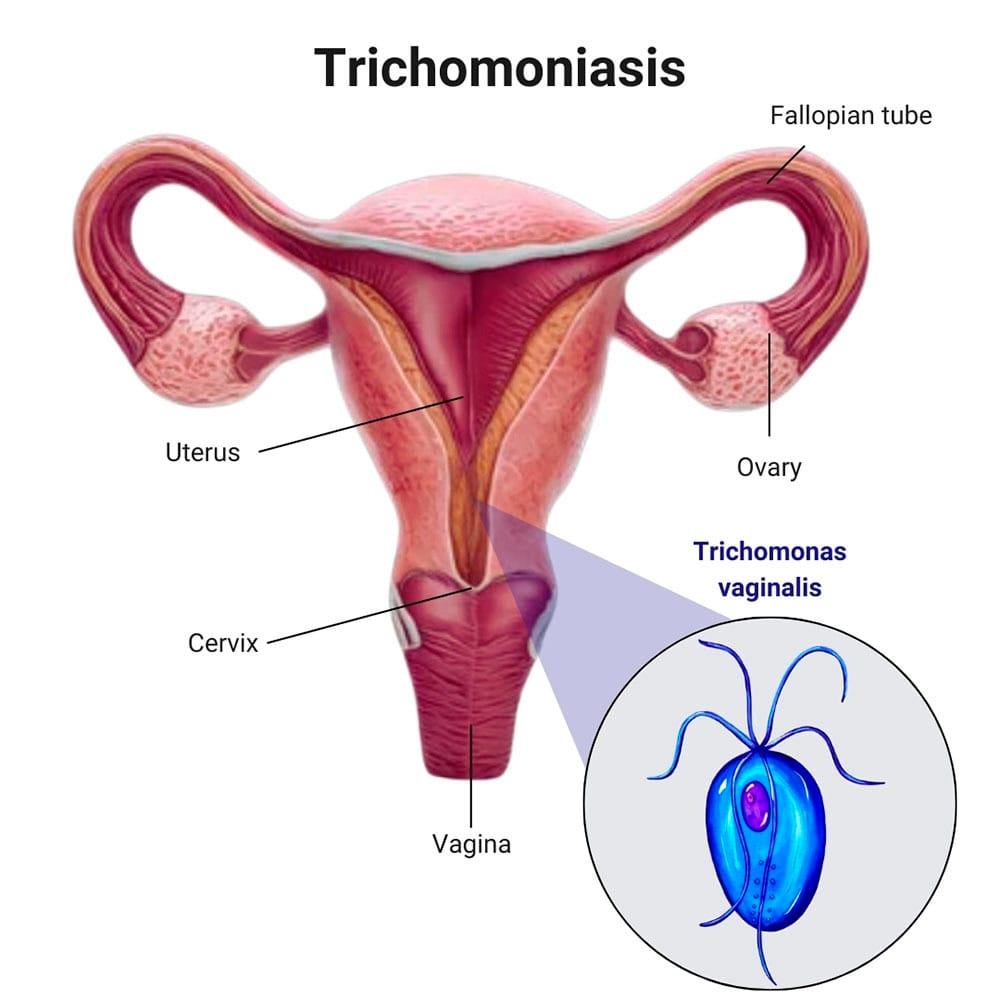What Is Trichomoniasis?
 Trichomoniasis is an infection that affects millions of people each year. It’s caused by a parasite known as trichomonas vaginalis. It’s classified as a sexually transmitted disease because sexual contact is the primary way in which it’s transmitted, be it through vaginal, anal or oral sex. It’s an easily treatable disease but can cause long term complications when left untreated, including infertility.
Trichomoniasis is an infection that affects millions of people each year. It’s caused by a parasite known as trichomonas vaginalis. It’s classified as a sexually transmitted disease because sexual contact is the primary way in which it’s transmitted, be it through vaginal, anal or oral sex. It’s an easily treatable disease but can cause long term complications when left untreated, including infertility.
Cohen Medical Practice (CMP) is a leading treatment provider for trichomoniasis and other STDs. Dr. Felix Cohen and his team have expert skills and extensive experience in accurately diagnosing and effectively treating gynecological problems. You’re welcome to their state-of-the-art clinic in Midtown New York City for routine checks or complex treatments.
How Fast Do Trichomoniasis Symptoms Appear?
You may experience symptoms in as few as three days or in a longer period up to 28 days. Some women don’t show any symptoms. In some people, the immune system is strong enough to fight off the infection. However, the parasite remains active and can be transmitted to other people.
The symptoms may also be mild in the early stages of the infection. Severe trichomoniasis symptoms are disruptive and emotionally distressing. They also may be more prominent in people with weakened immunity.
Common symptoms include:
- An unusual greenish-yellow, frothy vaginal discharge
- Itchy or burning sensation in the vagina or vulva that’s more intense when urinating
- Strong abnormal vaginal odor
- Unusual discharge after sex
How Do I Confirm if I Have Trichomoniasis?
Diagnosing trichomoniasis involves a review of your medical history and sexual behavior, lab tests and a pelvic examination. You can expect the doctor to start by asking questions about your recent sexual encounters, if you’re sexually active.
A pelvic exam includes a visual examination of the genitals.
The doctor also collects a sample of the discharge for lab tests, including:
- Wet mount. This test looks for the trichomoniasis parasite in the sample collected, using a microscope.
- Nucleic acid amplification tests. This is a highly sensitive test for detecting the parasite.
- Rapid antigen test. This rapid test detects the parasite fast in as little as 10 minutes.
What Are the Available Treatments for Trichomoniasis?
Antibiotics are the typical first-line treatment for trichomoniasis. These drugs work by killing off the parasite and its associated bacteria. It’s essential to complete the full drug regimen to ensure the infection is cleared.
The prescribed dosage varies from person to person but lasts for less than 10 days.
Doctors at CMP New York offer these drug prescriptions as:
- Single-dose treatment. The prescription requires administration of metronidazole, secnidazole or tinidazole antibiotics as a single dose for mild infections.
- Multi–dose treatment. For this regimen, you take the prescribed antibiotic for seven to 10 days to clear a severe infection.
- Partner treatment. Your sexual partner also must receive a similar round of antibiotics to clear up the infection and prevent you from being reinfected.
What Are the Risks of an Untreated Trichomoniasis Infection?
Remaining untreated for trichomoniasis elevates the risks of developing more complex conditions. It also raises the risk of contracting other STDs, including HIV. There is also the definite possibility of infecting other people.
Early detection and treatment ensure more positive and quicker health outcomes when you take the prescribed drugs correctly.
Remaining untreated brings on consequences such as:
- Increased risks of acquiring other infections. The body becomes more vulnerable to sexually transmitted infections like chlamydia and gonorrhea.
- Human immunodeficiency viruses. The inflammation and lesions caused by trichomoniasis also make it easier for HIV to enter the body.
- Chronic pelvic pain. Discomfort and pain is persistent in the genitals even during everyday activities.
- Pelvic inflammatory disease. This is an infection that affects other organs in the pelvic area.
- Preterm labor. If you’re infected while pregnant, there’s an increased risk of miscarriage or preterm labor and low birth weight.
- Infertility. The damage and scarring caused to the reproductive organs make it difficult to conceive.
How Can I Prevent Trichomoniasis Infection?
You can lower or eliminate the risks of contracting a trichomoniasis infection by moderating or changing sexual practices and behavior. Prevention is the best defense against trichomoniasis infection and other STDs.
CMP doctors advocate for safe sex practices as the first step to staying safe from STDs.
Some of the simple steps you can take to keep yourself safe include:
- Consistent and correct use of protection barriers, especially condoms and dental dams for oral sex
- Regular STD screening, especially when starting a new sexual relationship
- Sticking to one tested partner
- Avoiding sharing of personal items like washcloths
CMP New York gynecologists offer effective treatment options for all STDs including:
Dr. Cohen and the team bring their skills and experience to bear to treat even the most stubborn and complex gynecological problems. These accomplished gynecologists and surgeons have helped thousands of women restore their health and quality of life. Contact Cohen Medical Practice (CMP) today to get the treatment you require.

